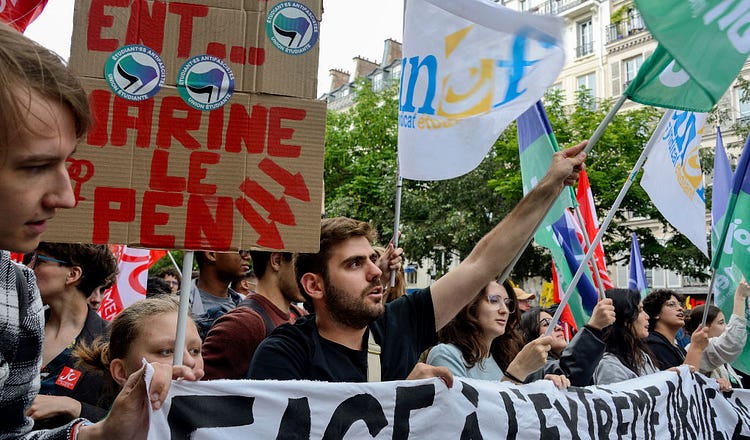Bernard-Henri Lévy: Does France Face a ‘Civil War’?

Student union with a sign stating “young people piss off Marine Le Pen” during a demonstration against the far right on June 15, 2024, in Paris. (Photo by Francois Goudier/Gamma-Rapho via Getty Images)
The populist right and the populist left are dominating French politics ahead of Sunday’s elections. What’s a voter to do?
160
PARIS — Does France face a “civil war”? That is what President Emmanuel Macron has warned is at stake this Sunday as we head to the polls to vote in the snap elections he called in the wake of his party’s defeat at the hands of the far right in last month’s European Parliament vote.
Critics accuse him of using a strategy of fear to rally his base to tur…
Continue Reading The Free Press
To support our journalism, and unlock all of our investigative stories and provocative commentary about the world as it actually is, subscribe below.
$8.33/month
Billed as $100 yearly
$10/month
Billed as $10 monthly
Already have an account?
Sign In

